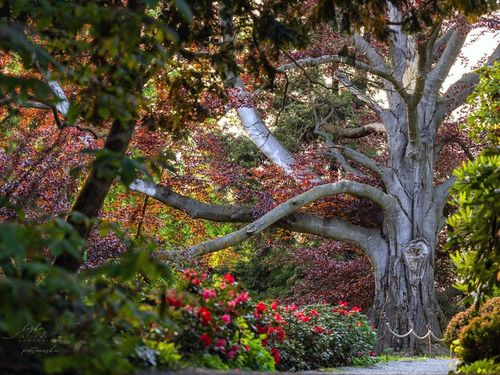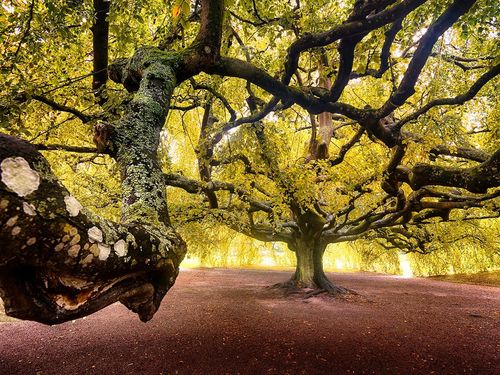A Curse Called Bark Beetle. Czech Forests Disappear at an Incredible Speed.
1/24/2018 | Anna Petrikova
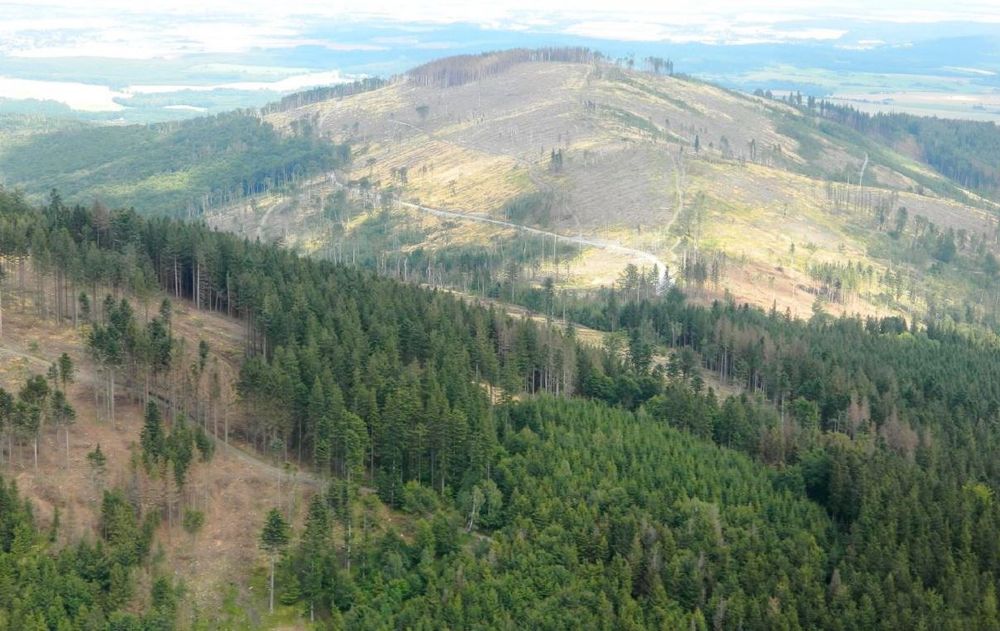
The year 2017 was the first year of the ten-year plan, according to which a maximum of 5900 m3 of wood should have been harvested every year in the forests of the town of Zlaté Hory, Czech Republic. In just one year, however, the plans went down the drain. "In the year 2017, we harvested twenty-two thousand m3, four times the planned amount! It means we are scoring an own goal but there is no other way. We do not work in a forest, we work in a graveyard," Jaroslava Čechová, the manager of the Forests Zlaté Hory describes the bark beetle outbreak in the region. To make matters worse, the individually standing deciduous trees, firs, larches and pines that remained on the bark beetle infected areas, were swept by a storm at the end of 2017. The destruction was completed by the wet snow under which the remaining trees broke and uprooted.
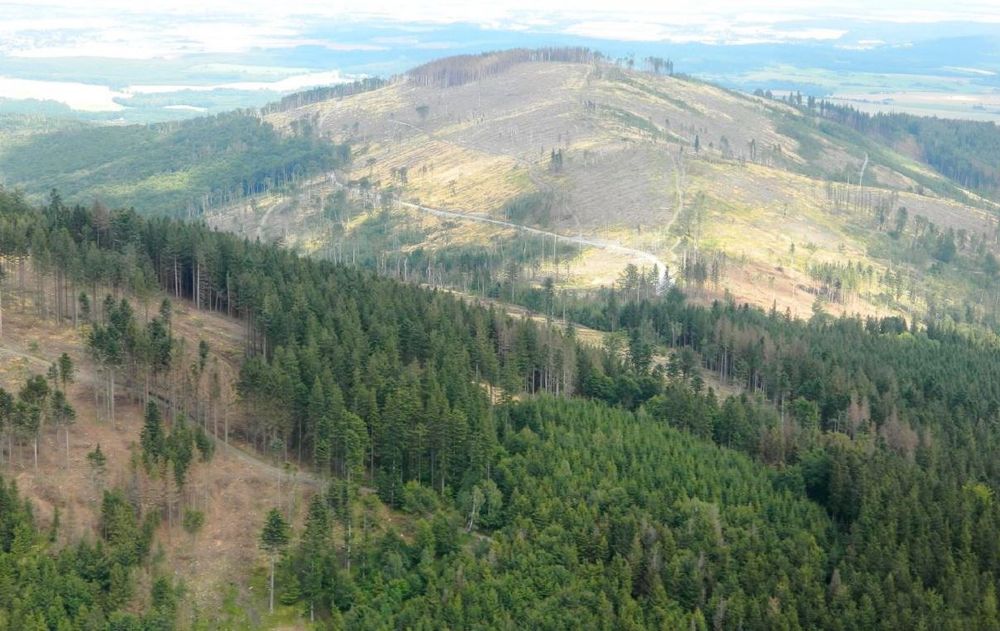
At the end of 2017, at least 3000 m3 of bark beetle infected trees grew there, which certainly will not survive until the spring. The situation in the region is even worse than the situation fifteen years ago in Silesia – a region quite close to Zlaté Hory. The current progress of the bark beetle is much faster. In areas affected fifteen years ago, the old spruce trees almost disappeared.
From a heavily infected tree, up to 150,000 bark beetles can fly out. Such an amount of beetles is able to destroy up to eight other trees. In addition, bark beetles move like a frontline - inexorably and systematically, from lowlands to mountains. When the attack passes, Zlaté Hory will look like after the WWII - bare abandoned hills with little fields and nobody to work there.
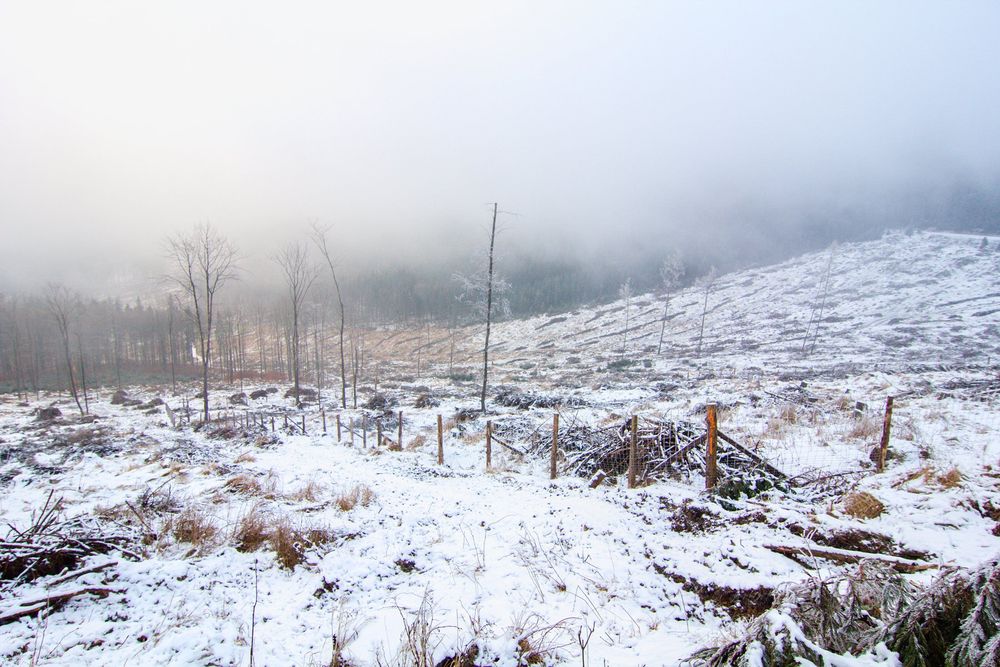
It is important to see the connection between the climate and the condition of spruce forests and their future. There was nothing we could do about the lack of water in recent years. This is the main reason for the lower resistance of spruce to the beetle. Over the past fifteen years, the region has had only above-average temperatures during the growing season, and repeating periods of extreme rain fall fluctuations leading to lack of water in the soil. In addition to that, acidification of the soil as a result of acid rains in the 1980s and lack of basic nutrients also contributes to the decline of the spruce. Such a tree suffering from drought and does not stand a chance against the beetle. It should be emphasized, that not only climate fluctuations, but also nature of spruce monocultures enhanced impact of bark beetle infection outbreak.
Special thanks for the kind help to Jaroslava Čechová, the manager of the Forests Zlaté Hory.
Special thanks for the kind help to Jaroslava Čechová, the manager of the Forests Zlaté Hory.
Share

